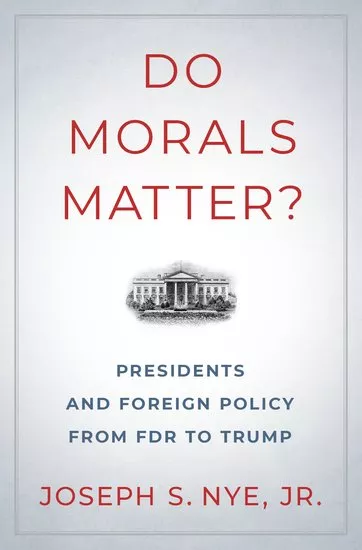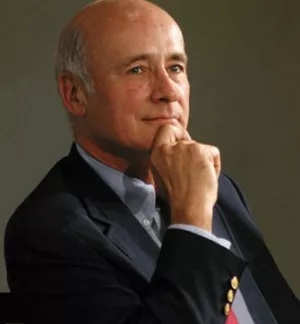
When U.S. presidents make tough decisions about foreign policy, how big a role does their moral compass play?
In his new book, Do Morals Matter? Presidents and Foreign Policy from FDR to Trump, leading scholar of international relations Joseph S. Nye, Jr. suggests examining presidential decisionmaking on three ethical dimensions: intentions, means, and consequences. Nye evaluates the leadership qualities of U.S. presidents from World War II to today, elaborating on which approaches work and which ones do not. By doing so, readers will see that each president was not fully constrained by the structure of the system and actually had choices – including the choice to not act.
President George W. Bush, for example, showed that good intentions without adequate means can lead to ethically bad outcomes, such as the massive human suffering of the Iraq war. And while President John F. Kennedy will always be remembered for his skillful handling of the 1962 Cuban Missile Crisis, it should also be noted that his earlier actions helped set the stage for such a high-stakes confrontation. The result is a mixed ethical scorecard for Kennedy, with Nye giving him a good rating for moral vision and mixed marks for prudence.
Since we so often apply moral reasoning to foreign policy, Nye suggests how to do it better. With the world facing high-stakes threats such as nuclear war, climate change, and technological disruption, our 46th president will need to shape foreign policies to meet these new challenges. Through this concise examination of past and present presidents, Do Morals Matter? will help improve applying moral reasoning to foreign policies for our future president.
SELECTED REVIEWS
“In times like these, it is important to appreciate the role that moral reasoning should play in foreign policy. This is especially true in a democracy, where sustaining global involvement requires support from citizens. Joe Nye is one of our foremost and engaging analysts of American diplomacy, and in this book he provides a clear-eyed guide for reengaging our moral compass.” — Walter Isaacson, Distinguished Fellow and Former CEO, Aspen Institute, and Professor of History, Tulane University
“From the doyen of US foreign policy thinkers, a powerful warning against domestic populist politics, which not only narrow our moral vision but defeat US purposes around the world.” — O.A. Westad, Yale University
“With characteristic insight and precision, Joseph Nye raises tough questions of how much ethics should shape a nation’s foreign policy, provides a sweeping review of how past presidents have embraced or rejected ethical imperatives, and constructs a helpful scorecard for judging future presidents. This book takes on even greater significance as a growing number of nations-led by the U.S.-nakedly put self-interest first.” — David Gergen, CNN Senior Political Analyst, and Founding Director, Harvard Kennedy School Center for Public Leadership
“In Do Morals Matter? Joseph S. Nye argues persuasively that in foreign policy, good intentions must be accompanied by the use of appropriate means that generate beneficial consequences. His astute analysis of American presidents since World War II demonstrates that ‘contextual intelligence’ is crucial for moral principles to yield good results.” — Robert O. Keohane, Princeton University
“A lucid, thoughtful and original examination of the role morality plays as American presidents shape their foreign policy. As Professor Nye shows convincingly in this highly readable book, leaders and citizens alike make assumptions, decisions and judgments which reflect their own views about what is good and bad. Yet again he has contributed much to our better understanding of international relations.” — Margaret MacMillan, Emeritus Professor of International History, University of Oxford
Nye, Joseph. “Do Morals Matter? Presidents and Foreign Policy from FDR to Trump.” Oxford University Press, January 2, 2020





